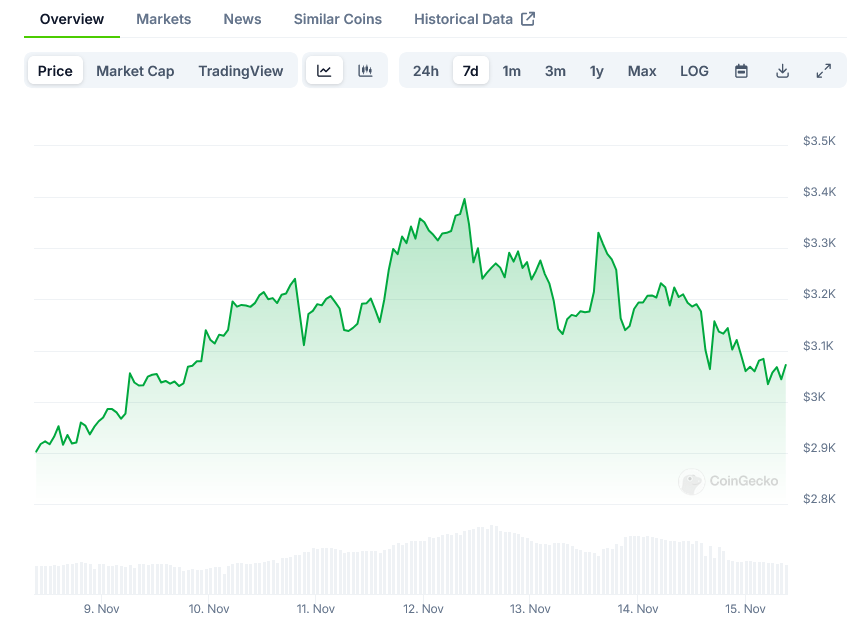More Needs to Be Done to Ensure Tanzanians Understand the Risks of Crypto Trading, Says Blockchain Educator

Tanzanians are embracing cryptocurrencies but more work still has to be undertaken in order to reduce the number of scams in the industry, a blockchain educator has said.
In much of the year 2021, blockchain entities and proponents of the technology in Tanzania did much to bring this fintech to ordinary folks in that country. This has been either through roadshows or investment commitments. These efforts have also been bolstered by President Samia Suluhu Hasan’s apparent embrace of the technology.
As a result of such efforts, more Tanzanians are becoming acquainted with cryptocurrencies than in the past. On the other hand, increased cryptocurrency trading activities have also forced the Bank of Tanzania to once again warn residents of the risks they face each time they trade.
However, as Sandra Chogo — a Tanzania based blockchain educator — suggested to Bitcoin.com News, more work still needs to be done to ensure Tanzanians are aware of the risks involved in crypto trading. She also said the release of the right information about cryptocurrencies will boost efforts to reduce the number of crypto scams in that country and beyond.
Below are some of Chogo’s responses to questions that were sent to her to via WhatsApp.
Bitcoin.com News (BCN): Can you explain to our readers why you became involved in the blockchain advocacy work?
Sandra Chogo (SC): We are always looking for opportunities so I saw the opportunities in Blockchain. I also saw the risks especially of cryptocurrencies to citizens and to the monetary system. This made me want to share what I already had — in terms of knowledge — with government officials. I also wanted to educate (or inform) members of the public of ways they can avoid scams as well as how they can identify or distinguish legitimate opportunities from scams.
BCN: What have been some of your achievements or milestones so far?
SC: 1) I have written a book in my local language Kiswahili ” Jielimishe kuhusu Blockchain”
2) I have been invited to seminars and conferences in Tanzania and Africa.
3) I have been invited to universities where I talked and raised awareness about 4IR technologies.
4) I am the managing partner at Blocktech, a firm focused on blockchain awareness and training.
BCN: You are one of the few women involved in blockchain advocacy work in Africa. Do you think that there are specific challenges that stop women from becoming involved in this work?
SC: African women have got a lot of house responsibilities which make it difficult for them to look for other opportunities which are not that straightforward. To understand the blockchain you need to have the time.
BCN: The Tanzanian central bank recently indicated it would start exploring the possibility of issuing a CBDC. Do you see this being rolled out anytime soon?
SC: The Tanzanian CBDC is still in its early stages. A lot of understanding and research still needs to be done. So it [CBDC launch] won’t happen any time soon.
BCN: From your point of view, are CBDCs a good thing?
SC: CBDCs are a good thing. The cost of printing paper money will be reduced hence transaction fees will go down. Less time will be used to settle payment transactions.
BCN: Occasionally, a few crypto scams stories do get widespread attention and often regulators use such stories to push back or discourage the use of cryptocurrencies. What do you think needs to be done to ensure regulators are aware of the beneficial side of cryptocurrencies?
SC: It’s true some regulators use such stories. I don’t blame them maybe it’s the only information about cryptos that they have at that moment. The problem is that information about cryptocurrencies is difficult to find and understand. Getting the right information and understanding cryptos will help reduce the number of scams.
BCN: Do you see the much talked about mass adoption of digital currencies happening in say the next five years?
The younger generation is the one adopting digital currencies or cryptocurrencies much faster than the adults. So much of the adoption will be down to the younger generation (aged 35 and below).
What are your thoughts about this interview? Tell us what you think in the comments section below.






